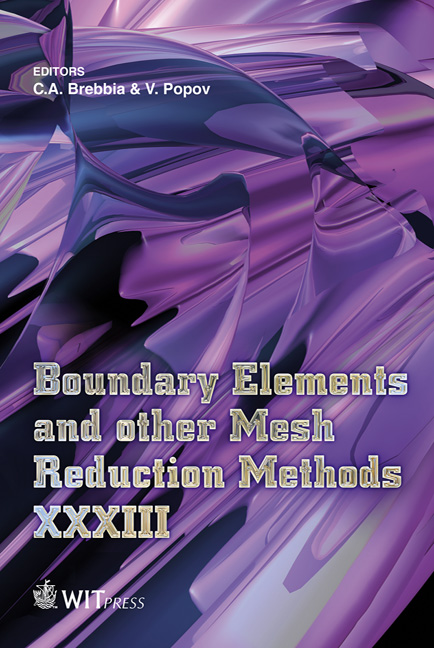Meshless Computation For Partial Differential Equations Of Fractional Order
Price
Free (open access)
Transaction
Volume
52
Pages
11
Page Range
333 - 343
Published
2011
Size
344 kb
Paper DOI
10.2495/BE110291
Copyright
WIT Press
Author(s)
P. H. Wen & Y. C. Hon
Abstract
Fractional advection-dispersion equations are used in groundwater hydrology to model the transport of passive tracers carried by fluid flow in a porous medium. In this paper, the numerical properties of partial differential equations of fractional order 1 2 are investigated by the use of a radial basis function interpolation scheme. The differential equations of fractional order are first analyzed in the Laplace transformed domain and the Durbin inversion method is then used to determine the solutions in the time domain. The accuracy and stability of these methods are investigated for several standard types of problems involving partial differential equations of fractional order. Keywords: fractional derivatives, partial differential equations, radial basis function, Laplace transform, Durbin algorithm. 1 Introduction Analysis of the diffusion-wave equation in mathematical physics has been of considerable interest in the literature. Ordinary and partial differential equations of fractional order have been the focus of many studies because of their frequent appearance in various applications in fluid mechanics, viscoelasticity, biology, physics, and engineering. Fractional calculus in mathematics is a natural extension of integer-order calculus and gives a useful mathematical tool for modeling many processes in nature. One of these processes, in which fractional derivatives have been successfully applied, is called diffusion [1]. Fractional derivatives have recently been applied to many problems in physics [2–8], finance [9, 10], and hydrology [11]. Fractional space derivatives are used to
Keywords
fractional derivatives, partial differential equations, radial basis function, Laplace transform, Durbin algorithm





